Centers and Institutes
Centers Heading link
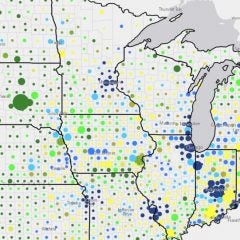
The Population Health Analytics, Metric and Evaluation Center integrates novel technology with academic expertise to provide community-level data analysis, evaluation and visualization for community members, policy makers, researchers and students in the city of Chicago and beyond. We aim to support and advance data-driven public health decisions, meaningful population health initiatives and the reduction of health disparities, all centered around social determinants of health. Center Website

The UIC Black Lung Center for Excellence supports the needs of the federal Health Resources and Service Administration (HRSA) Black Lung Clinics Program. The Center provides resources for health care professionals on the changing patterns and severity of Coal Mine Dust Lung Disease, works with coal miners and their families to ensure access to the latest services through HRSA and provides health care, legal and benefits professionals with information on policy, procedures and peer-reviewed literature. Center Website

The Center for Biostatistical Development provides a biostatistical research environment aimed at fostering and developing innovative methods to address health-related scientific problems. The Center provides education and training, via lectures and workshops, to increase the accessibility and use of the novel statistical methods and disseminate biostatistical research that will address and advance questions in the health sciences.
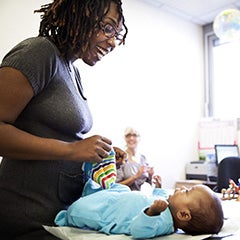
The UIC Center of Excellence in Maternal and Child Health trains students to support and promote the health and well-being of women, children and families. In partnership with public and private agencies serving maternal and child health populations and communities, the Center emphasizes understanding the complex factors that affect population health and health disparities. Center Website

The Center for Healthy Work is one of six Centers of Excellence for Total Worker Health through the CDC’s National Institute for Occupational Safety and Health. The Center works to remove barriers that impact the health of low wage workers in the increasingly contingent workforce by identifying and promoting employment programs, practices and policies that will improve worker and community health locally, across the state and throughout the nation. Center Website

The Chicago Center for Health and Environment (CACHET) promotes multidisciplinary environmental health research among clinician, laboratory and population scientists from two Chicago area universities with complementary strengths and structure to understand, evaluate and ultimately reduce environmental health related disparities among residents of the region and beyond. Center Website
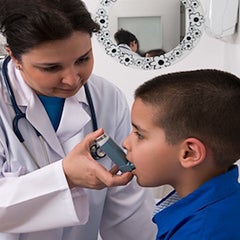
The Community Asthma Prevention Program responds to a high rate of asthma hospitalization and mortality in low-income and African-American Chicago neighborhoods with a community-based peer educator program aimed at decreasing risk factors for asthma. The program increases understanding of how asthma develops in children, identifies modifiable risk factors and demonstrates effectiveness of intervention strategies that target the needs of underserved populations.

The Community Outreach Intervention Project serves the needs of Chicago residents with HIV/AIDS, particularly people who use drugs. Services include street outreach, counseling and testing for HIV, HCV, syphilis and other infectious diseases associated with substance use, case management for people who are HIV or HCV positive, syringe exchange, drug abuse and risk reduction counseling, drug overdose education, support groups, and other educational activities. Project Website

The Great Lakes Center for Occupational and Environmental Safety and Health is a World Health Organization Collaborating Center. The Center focuses on improving the health and safety of workers, particularly workers across the globe in the informal economy. In particular, the Collaborating Center works to equip healthcare providers and occupational health experts across the globe with skills to address mercury exposure and emissions that result from artisanal and small-scale gold mining. The Collaborating Center’s environmental portfolio includes green healthcare efforts, addressing effects climate change in the global south and biosecurity and health in the Arctic. Center Website

The Great Lakes Center for Reproductive Children’s Environmental Health is one of ten Pediatric Environmental Health Specialty Units across the country dedicated to children’s environmental health issues, in partnership with the US EPA Office of Children’s Health Protection and the Agency for Toxic Substance and Disease Registry. The Center serves as a source of medical information and advice on environmental exposures influence reproductive and children’s health. Center Website

The Great Lakes Center for Occupational Health and Safety provides masters and doctoral training in industrial hygiene, occupational safety, occupational and environmental epidemiology, agricultural health and safety and residency training in occupational medicine. The Center is funded by the CDC’s National Institute for Occupational Safety and Health. Center Website
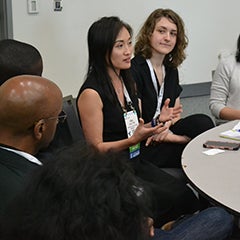
The Institute for Health Research and Policy stimulates and supports high-quality research across UIC aimed at improving health practices and policies through a multidisciplinary perspective. Its research aims to understand and reduce racial, ethnic and socioeconomic disparities in the prevalence and burdens of the top causes of death and disability in the US. Institute Website

The Policy, Practice, and Prevention Research Center (P3RC) conducts research and evaluation to expand the public health evidence base, translates this evidence for use by practitioners, and strengthens leadership capacity to advance policies and practices that improve population health and equity. Center Website
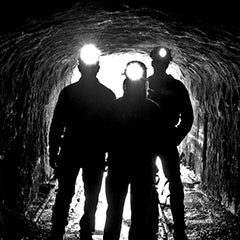
The UIC Mining Education and Research Center works to reduce the risk for mining-related health problems and treat and care for the mining workforce. Current grant projects are examining why mine dust-related lung diseases, including progressive massive fibrosis and rapidly progressive pneumoconiosis, are on the rise and evaluating the course of black lung disease over a miner’s lifetime, including malignant and non-malignant respiratory disease. The center also trains physicians to examine coal miners and identify coal mine dust-related lung disease on X-rays. Center Website